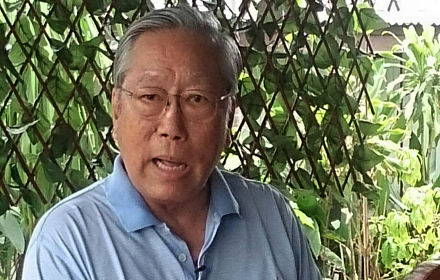Terrorist attacks in Paris serves a wake-up call for Thailand
The terrorist attacks in Paris on the night of November 13 which left at least 129 dead and hundreds injured should serve a wake-up call for Thailand to revamp its national security measures to cope more effectively with terrorist threats, said a former senior security officer who declined to be named.

The officer described the Paris attacks as an “unknown threat” saying that it was a kind of security threat which was undetected by intelligence agencies and, therefore, could not be prevented.
“Preventive measures cannot be adopted for this kind of threat because it is not known who are the targets and coordination with intelligence agencies of the other countries will not help much because each intelligence agency is only concerned with protecting its own target. Therefore, self-dependence is important,” said the ex-security officer.
In the case of Thailand, he said people in charge of national security tend not to speak the truth about the need to revamp the country’s security measures and that the public must understand that they may have to cede some of their rights and allow security agencies to have some special powers to cope with terrorist threats.
As far as Thailand is concerned, the unnamed officer said the threat against Thailand stems from two factors. Firstly, the government’s policy such as the policy to send Thai troops to fight foreign terrorists or the policy to extradite international terrorists to other countries as requested and, secondly, the threat from the terrorists themselves who want to attack targets in Thailand.
The officer, however, said that government’s policy was unlikely the cause of international terrorist attacks compared to possible attacks against foreign governments’ interests in Thailand.
Regarding the security threat posed by southern separatist groups, the same officer said that the main goal of the separatists was self-determination and not to terrorise the public. Also, their activities have mostly been confined to the three southernmost provinces.
Mr Nanthawat Samart, former deputy director of the National Intelligence Agency admitted it was difficult to prevent terror attacks from international terrorists but tightening of immigration could mitigate the problem.
As for Thailand, he noted that the government’s “open door” policy to welcome foreign tourists with least restrictions is vulnerable to exploitation by international terrorist organizations.
Lt-Gen Nanthadet Meksawat, a former officer attached to the Central Security Command, said France, the US and Britain were vulnerable to terrorist attacks because of their roles in the Middle East and their war against ISIS.
He also pointed out that France does not have an agency in charge of domestic security such as Homeland Security Department in the US but the job to oversee domestic security is designated to the Interior Ministry.
The general also blamed France’s weakness in immigration control. Citing the case of Britain, he said that after a terrorist attack of the underground train system in London in 2005, the British government upgraded its CCTV system in London but France did nothing despite previous terrorist attacks.
-------------------------------------------------------------------------------------------------------------------------
Caption : Mr Nanthawat Samart
